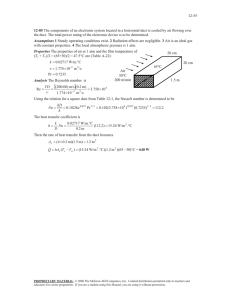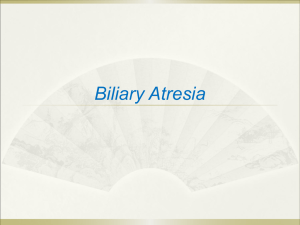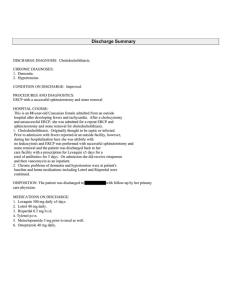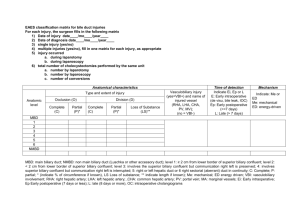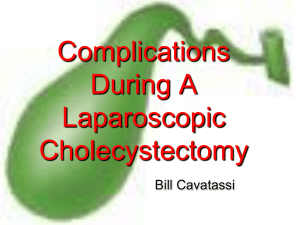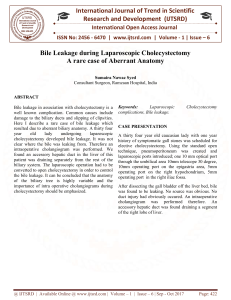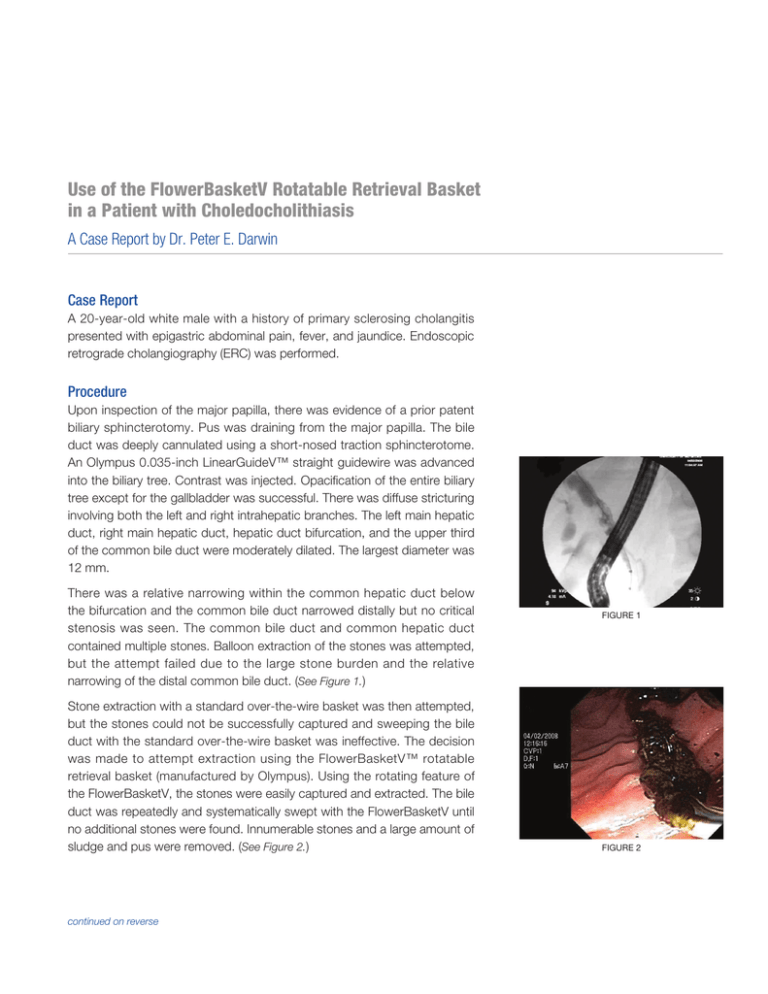
Use of the FlowerBasketV Rotatable Retrieval Basket
in a Patient with Choledocholithiasis
A Case Report by Dr. Peter E. Darwin
Case Report
A 20-year-old white male with a history of primary sclerosing cholangitis
presented with epigastric abdominal pain, fever, and jaundice. Endoscopic
retrograde cholangiography (ERC) was performed.
Procedure
Upon inspection of the major papilla, there was evidence of a prior patent
biliary sphincterotomy. Pus was draining from the major papilla. The bile
duct was deeply cannulated using a short-nosed traction sphincterotome.
An Olympus 0.035-inch LinearGuideV™ straight guidewire was advanced
into the biliary tree. Contrast was injected. Opacification of the entire biliary
tree except for the gallbladder was successful. There was diffuse stricturing
involving both the left and right intrahepatic branches. The left main hepatic
duct, right main hepatic duct, hepatic duct bifurcation, and the upper third
of the common bile duct were moderately dilated. The largest diameter was
12 mm.
There was a relative narrowing within the common hepatic duct below
the bifurcation and the common bile duct narrowed distally but no critical
stenosis was seen. The common bile duct and common hepatic duct
contained multiple stones. Balloon extraction of the stones was attempted,
but the attempt failed due to the large stone burden and the relative
narrowing of the distal common bile duct. (See Figure 1.)
Stone extraction with a standard over-the-wire basket was then attempted,
but the stones could not be successfully captured and sweeping the bile
duct with the standard over-the-wire basket was ineffective. The decision
was made to attempt extraction using the FlowerBasketV™ rotatable
retrieval basket (manufactured by Olympus). Using the rotating feature of
the FlowerBasketV, the stones were easily captured and extracted. The bile
duct was repeatedly and systematically swept with the FlowerBasketV until
no additional stones were found. Innumerable stones and a large amount of
sludge and pus were removed. (See Figure 2.)
continued on reverse
FIGURE 1
FIGURE 2
Use of the FlowerBasketV Rotatable Retrieval Basket
in a Patient with Choledocholithiasis
A Case Report by Dr. Peter E. Darwin
The immediate post-procedure course was uneventful. The patient was
discharged on oral antibiotics and clinically improved. One week postprocedure the patient was doing well, without abdominal pain or fever.
(See Figure 3.)
FIGURE 3
Peter E. Darwin, MD, FACP
Dr. Darwin serves as the Director of GI Endoscopy in the Division of
Gastroenterology at the University of Maryland in Baltimore. He is
an Associate Professor at the University’s School of Medicine and
focuses his primary clinical research in therapeutic endoscopy of
biliary and pancreatic disease and unsedated endoscopy.
Dr. Darwin is a paid consultant to Olympus America Inc., Medical
Systems Group (Olympus). Olympus did not draft, edit, or provide
any substantive input on this Case Report.
3500 Corporate Parkway, PO Box 610, Center Valley, PA 18034
For more information, contact your local Olympus
sales representative, or call 800-848-9024.
www.olympusamerica.com/endotherapy
©2010 Olympus America Inc. All rights reserved.
Printed in USA OAIET1110WP7088

